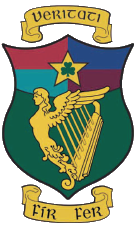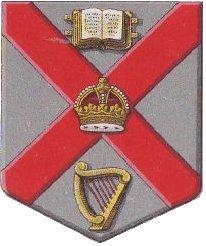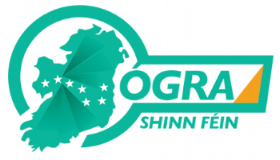
The National University of Ireland (NUI) is a federal university system of constituent universities and recognised colleges set up under the Irish Universities Act 1908, and significantly amended by the Universities Act, 1997.
A Bachelor of Medicine, Bachelor of Surgery is a medical degree granted by medical schools or universities in countries that adhere to the United Kingdom's higher education tradition. Despite the historical distinction in nomenclature, these degrees are typically combined and conferred together. This degree is usually awarded as an undergraduate degree, but it can also be awarded at graduate-level medical institutions. The typical duration for completion is five to six years.

Third-level education in the Republic of Ireland includes all education after second-level, encompassing higher education in universities and colleges and further education on Post Leaving Certificate (PLC) and other courses.
Events from the year 1920 in Ireland.

Alfred O'Rahilly, KSG was an academic with controversial views on both electromagnetism and religion. He briefly served in politics, as a Teachta Dála (TD) for Cork City, and was later the president of University College Cork. He also became a priest following the death of his wife.

The Queen's University of Ireland was established formally by royal charter on 3 September 1850, as the degree-awarding university of the Queen's Colleges of Belfast, Cork, and Galway that were established in 1845 "to afford a university education to members of all religious denominations" in Ireland.

The Catholic University of Ireland was a private Catholic university in Dublin, Ireland. It was founded in 1851 following the Synod of Thurles in 1850, and in response to the Queen's University of Ireland and its associated colleges which were nondenominational; Cardinal Cullen had previously forbidden Catholics from attending these "godless colleges".

Joe Brolly, born Padraig Joseph Brolly, is an Irish Gaelic football analyst, former player and barrister who played at senior level for the Derry county team. He is from Dungiven.

Ógra Shinn Féin is the youth wing of the Irish political party Sinn Féin. Ógra Shinn Féin is active and organised throughout the island of Ireland.

The Dominican Order has been present in Ireland since 1224 when the first foundation was established in Dublin, a monastic settlement north of the River Liffey, where the Four Courts is located today. This was quickly followed by Drogheda, Kilkenny (1225), Waterford (1226), Limerick (1227) and Cork (city) (1229). The order was reestablished in the 19th century after having been driven out in the 17th century by laws against Catholic religious orders. During the Penal Laws, as other Irish Colleges were established on the continent, in 1633 the Irish Dominicans established, the College of Corpo Santo, Lisbon and College of the Holy Cross, Louvain (1624-1797) to train clergy for ministering in Ireland. San Clemente al Laterano in Rome, was entrusted to the Irish Dominicans in 1677. In 1855, St. Mary's Priory, Tallaght, was established to train members of the order, who would complete their clerical studies in Rome and be ordained in the Basilica San Clemente.
Events from the year 1880 in Ireland.
Events from the year 1884 in Ireland.

Lumen Christi College is a co-educational Catholic grammar school in Bishop Street, Derry, Northern Ireland. The school was founded in September 1997 and is located at the site of the old St Columb's College. The school is made up of just over 840 students and 50 teachers.

Miriam Daly was an Irish republican and communist activist as well as a university lecturer who was assassinated by the loyalist Ulster Defence Association (UDA) in 1980.
Sir James Brown Dougherty, was an Irish clergyman, academic, civil servant and politician.

Letitia Alice Walkington was an Anglo-Irish lawyer who was the first woman to graduate with a degree of Bachelor of Laws in Great Britain or Ireland, which she received from the Royal University of Ireland.

Caoimhe Archibald is an Irish Sinn Féin politician, who has served as the Minister of Finance in Northern Ireland since February 2024.

Thomas Dillon was an Irish chemist and nationalist.
Denis J. Coffey was an Irish Professor of Physiology at the Catholic University Medical School, Dean of Medicine at UCD, and served as president of University College Dublin from 1910 until 1940.

















